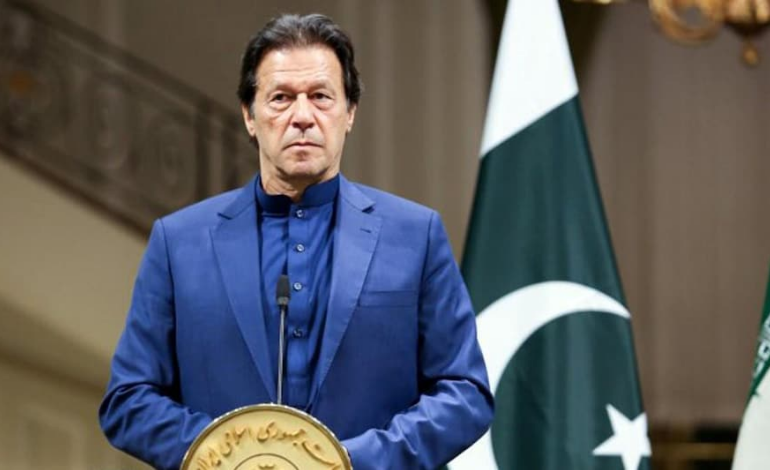
Imran Khan was disqualified by Pakistan's Election Commission on Friday for five years in the Toshakhana case for concealing proceeds from the sale of gifts he received from foreign leaders.
The Pakistan Tehreek-e-Insaf (PTI) Chairman is now prohibited from becoming a Member of Parliament for five years.
In August, the lawmakers in the ruling coalition government filed a complaint with the Election Commission of Pakistan (ECP) seeking the disqualification of 70-year-old Khan for failing to disclose the proceeds from the sale of gifts he had acquired at a reduced price from the state repository, also known as Toshakhana.
After hearing the case, the ECP held off on making a decision until September 19, when the proceedings came to an end.
Khan was found to have engaged in corrupt activities and was therefore ineligible to serve as a member of parliament, according to a Friday unanimous decision by the four-member ECP Bench, which is chaired by Chief Election Commissioner (CEC) Sikander Sultan Raja.
The ECP further declared that legal action would be taken against him for violating the laws against corrupt practices.
The ruling would be challenged in the Islamabad High Court, according to the secretary general of Khan's party, Asad Umar.
Another PTI leader, Fawad Chaudhry, disagreed with the decision and urged Khan's supporters to stage protests.
Khan, who took over in 2018, is said to have accepted expensive gifts from wealthy Arab leaders during official visits, which were left in the Toshakhana. Later, in accordance with the applicable laws, he purchased the same item at a reduced price and sold it for a profit.
The acquisition and sale were legal, although it is morally questionable for a ruler like Khan who constantly takes the high moral ground and never misses an opportunity to denounce his opponents as "corrupt."
During the hearing, the former premier informed the ECP that the presents he bought from the state treasury for Rs 21.56 million sold for roughly Rs 58 million.
A Graff wristwatch, a set of cufflinks, an expensive pen, a ring, and four Rolex watches were among the gifts.
Khan was accountable, according to Khan's opponents, since he neglected to report the sales on his income tax returns.
According to Articles 62 and 63 of the Constitution, which imply disqualification if someone is not truthful, the case submitted to the ECP suggests his disqualification.
The Toshakhana was established in 1974 and is a division under the administrative jurisdiction of the Cabinet Division that houses priceless presents that foreign dignitaries and heads of other governments and states have given to leaders, lawmakers, bureaucrats, and officials.